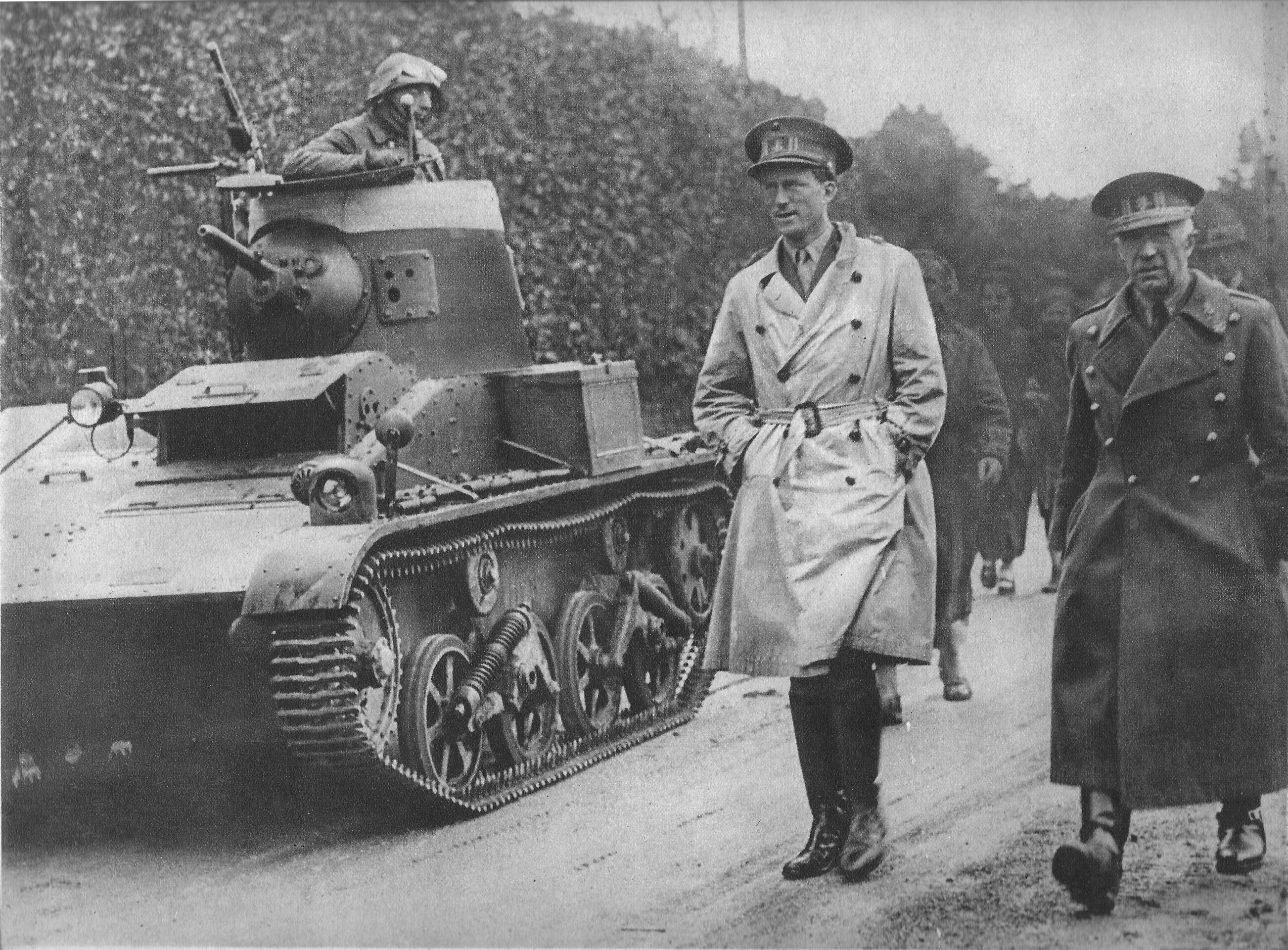A new book has revealed Belgian King Leopold III’s plans in 1942 to carve up Belgium into a small vassal Nazi state, officially handing Brussels, Antwerp and most of the country to Hitler in a peace deal.
The recent discovery of a secret document, written by a working group set up by Leopold himself to prepare for peace negotiations with Hitler in 1942, shows that the monarch was willing to carve out a small state he could run alongside the Nazis. The new state would have been located on the current Hainaut province and included a small part of Namur.
A new book Rexit! Léopold III and the tragic misunderstanding (available in Dutch) details these new findings. It is written by Belgian author and politician Vincent Stuer, who uncovered the document by accident when looking at the personal archives of Leopold's second wife, Princess Lilian, which became available after her death in 2003.
"I stumbled upon something that has gone unseen for 70 years. It was so sensitive and some of it very dodgy for the King's role, that his secretary purified the archives after the war," Rexit! author Stuer tells The Brussels Times. The secretary took some of the most incriminating things out of the archives, and kept them in the personal archives of Leopold and subsequently his wife's archives.
The book looks at the ten years between the Nazi invasion of Belgium in 1940 and King Leopold’s abdication in 1951, when the country was on the brink of civil war over the Royal Question.
It begins with Leopold III at the height of his popularity after he pursued a policy of neutrality at the start of the war. Belgians had initially believed the Nazi invasion had spared them the worst of the suffering – unlike in the First World War.
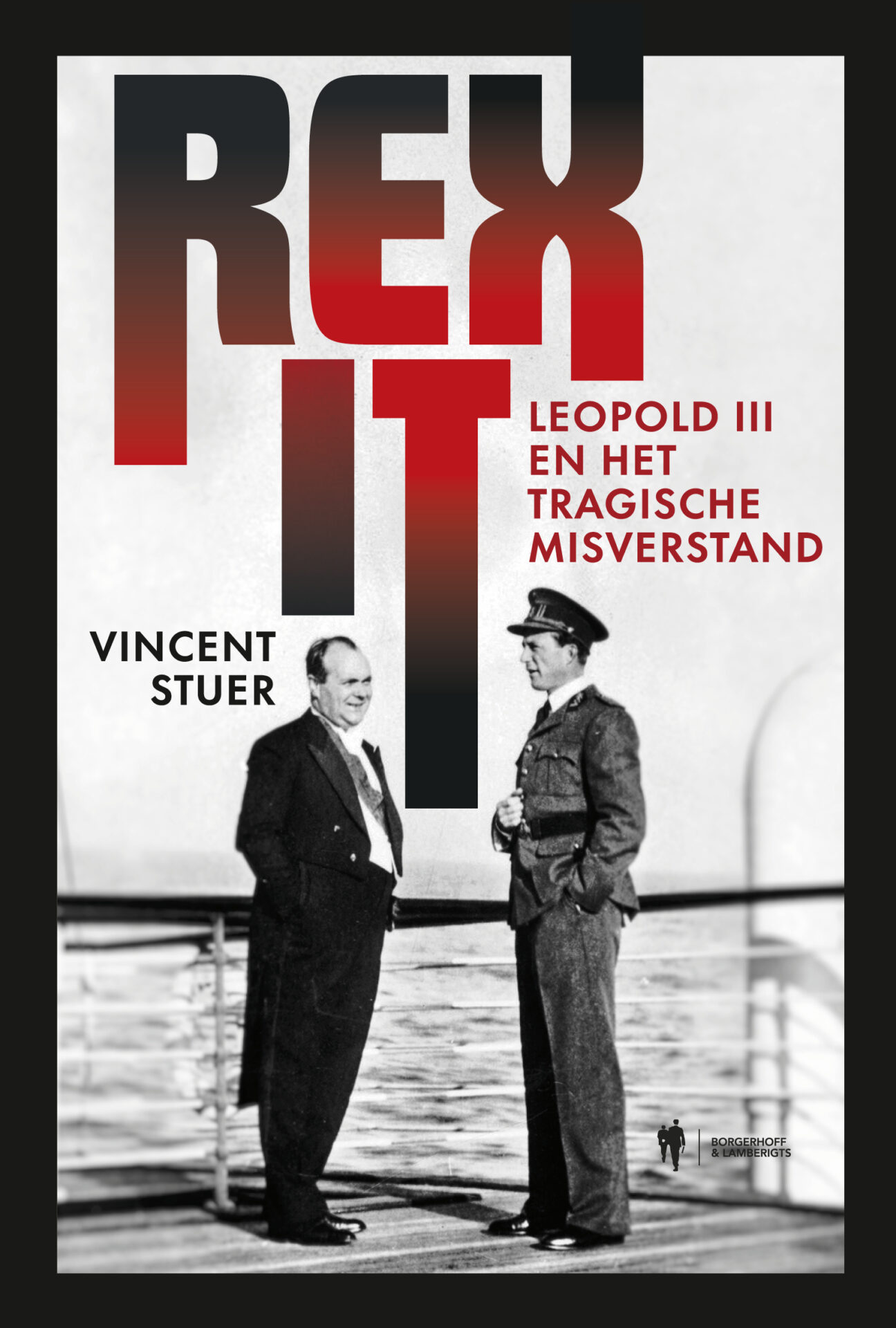
Rexit! Léopold III and the tragic misunderstanding by Vincent Stuer.
Nazi Germany had invaded Belgium in May 1940, with Leopold calling for the surrender of the Belgian Army as commander-in-chief after just 18 days later. He had refused to flee with the Belgian Government to London, opting to stay with the army.
The government-in-exile had widely condemned him for refusing to pursue the war from abroad, and suspected him of wanting a peace deal with Hitler. He was imprisoned in Laeken Castle for most of the war, but was deported to Germany in 1944, just before the liberation.
It set up the constitutional crisis later known as the Royal Question. On one side, Belgium had its elected government in exile, actively fighting alongside the Allies against fascism, and Leopold III, who had vowed to stay with ordinary Belgians, but ended up working alongside the Nazi occupiers amid suspicions of authoritarian sympathies.
Indeed, Stuer’s findings can confirm some of these suspicions. His plans for a new Belgian Nazi vassal state showed that morally, he was not on the side of the Allies. Rather, he was willing to secure himself some power while giving up most of the country to the Nazis. In 1942, Leopold was banking on peace negotiations that concluded the war, but on Germany’s terms.
"Now, that in itself is not at all a neutral position," says Stuer. "It means that he did not want Germany to lose the war and the Allies to win. He was hoping for a compromised peace."
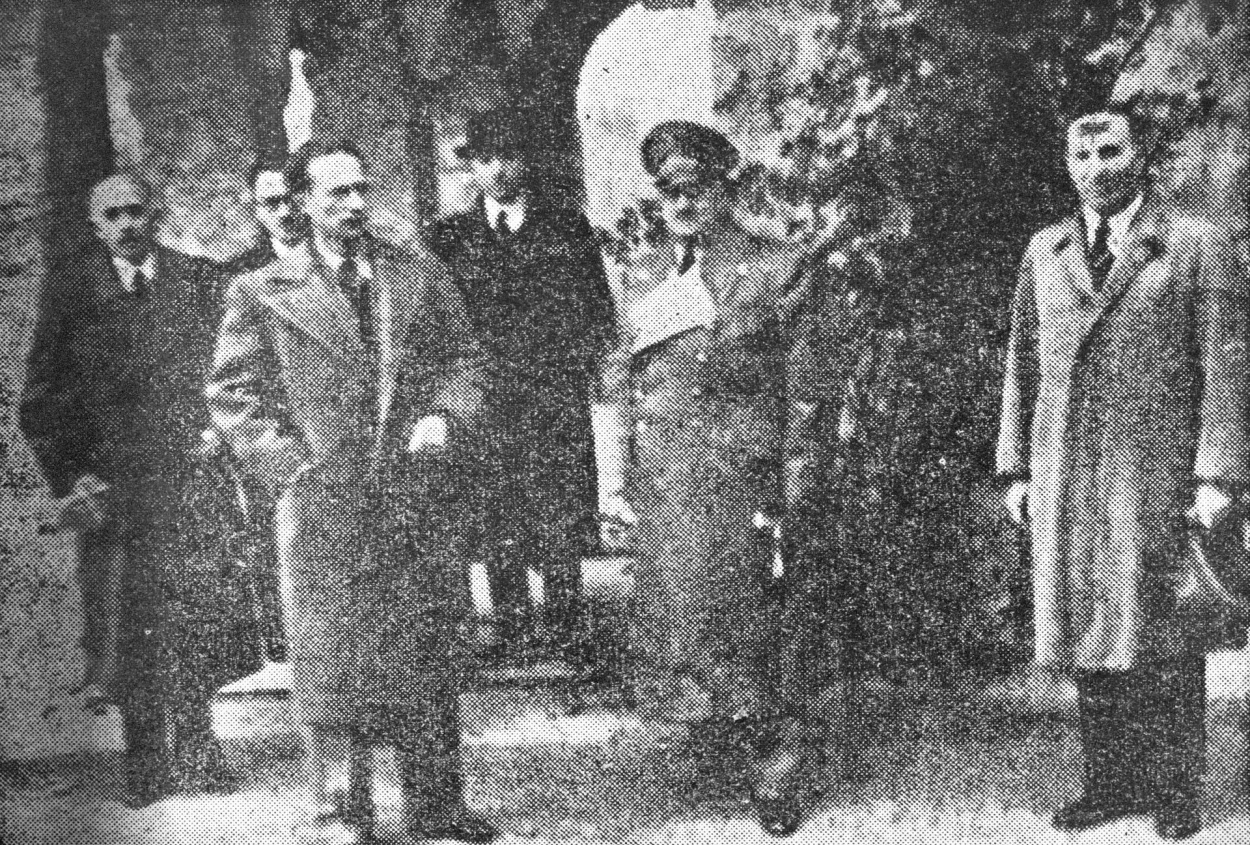
Leopold III meets Hitler at the Eagle's Nest in 1940.
In this groundbreaking document, Leopold ensures that, if there was such a negotiation for a compromise peace in Europe, he would do everything to keep Belgium out of the Allied camp. The monarch wanted Hitler to give him some of his sovereignty back in a kind of Vichy state, which Leopold expressly says in the document is inspired from the French example.
"He wanted to ask Hitler to buy him a place at the negotiating table by giving him this fake sovereign miniature state. And that would allow him, Leopold personally, to attend the peace negotiations and to keep the Belgian government, which was in the Allied camp, out of the negotiations," Stuer continues.
The Nazis took the most strategic parts of France – the capital, the industrial regions and the coast – which they needed for the war – but Belgium was too small to do that. If you take away the most important industrial port capital and coastal regions, it only leaves the Ardennes.
"If he asks for the one or two provinces of the Sambre and La Meuse, that is essentially somewhere harmless where there is no industrial or military base. There is no possible resistance and you end up being in a forest region, basically," Steur explains. "His sovereignty would have been purely nominal, but sufficient to keep the allied Belgians away from ther table – that was his primary concern."
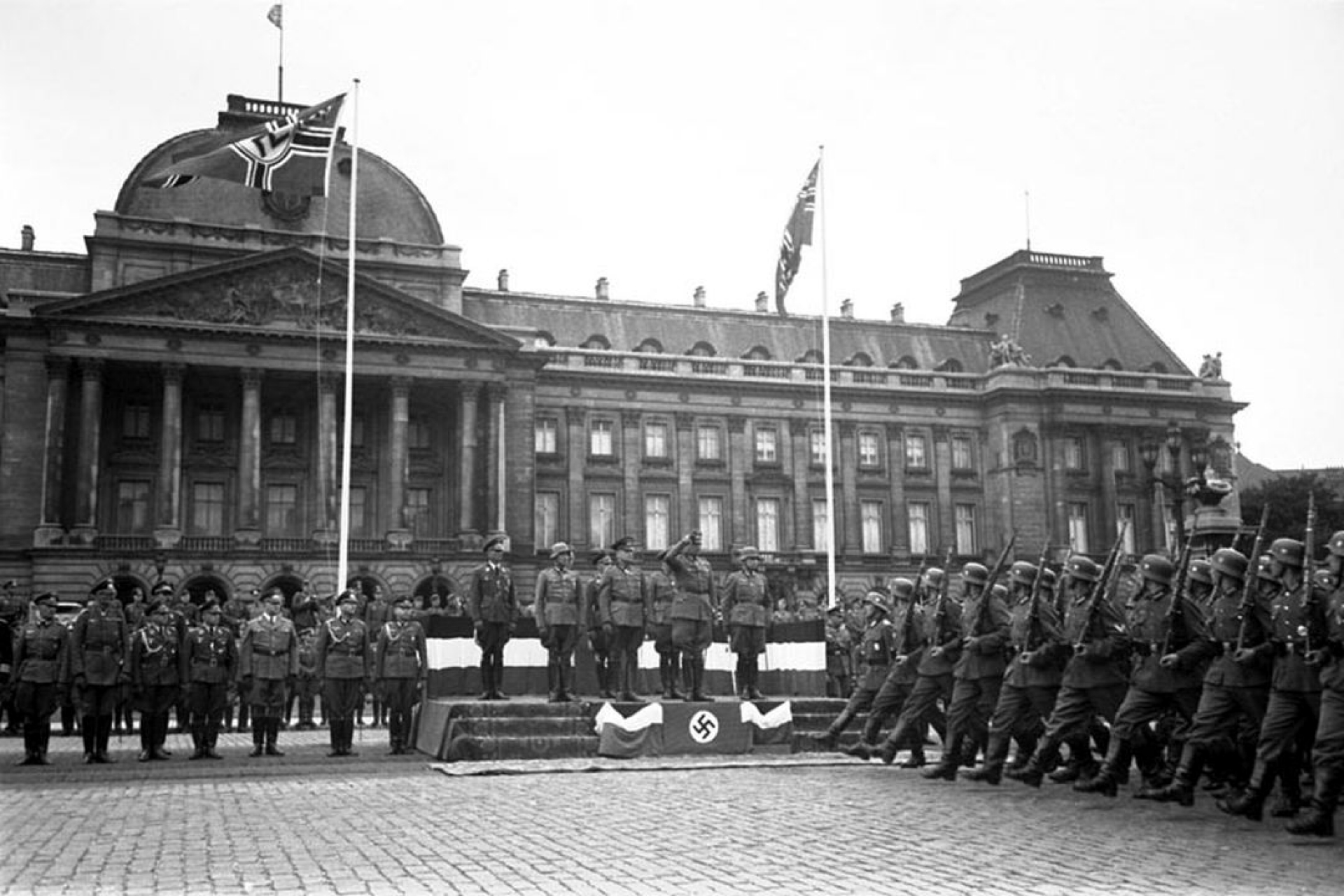
Nazi troops parade in front of the Royal Palace.
Leopold was willing to give up key Belgian cities like Brussels or Antwerp because he knew he would not get a better settlement with the Germans. The Belgian King had personally travelled to meet Hitler in November 1940 at the infamous Eagle’s Nest, the former mountain-top base in Berchtesgaden.
"It was known that very early on in the war, Leopold wanted this kind of Vichy regime installed. The only reason why it never happened was Hitler wouldn't let him. He wasn't interested," Stuer says.
Changing tides
Astonishingly, Leopold enjoyed high levels of support by Belgians at the start of the war in spite of the Nazi invasion. But around 1942 – when his working group document was being written up – his prospects had changed dramatically.
“At the beginning of the war, Leopold was seen as the man who saved the country from a very harsh war. If you'd had opinion polls in the summer of 1940, everyone would agree he had 95% support.”
Stuer likens the mood in Belgium during the summer of 1940 to one of elation and relief. This time, Belgians civilians had been spared the horrors of war and they saw the King’s policy of neutrality as having saved them.
"People were thinking that the war was over. If Belgium and France collapsed, then England would be next because nothing will stop these Germans,” Stuer continues. "People were saying: it's a war, but the weather is brilliant. We're being occupied, but they're behaving decently."
Yet, while people at the beginning were "just vaguely optimistic" about the German occupation, this would only last 6 months. By October 1940, people were beginning to be more cautious, and the two brutal winters of ‘40 and ‘41 smashed the honeymoon period into bits.

Belgian refugees fleeing the invasion, standing next to British soldiers, on 12 May 1940.
During the second winter, one of the most key moments in the whole war came on 7 December 1941: the attack on Pearl Harbor. By this point, Belgians were short on money, coal, potatoes and anything that kept life going even in tough periods.
That same day as news breaks of the attack on Pearl Harbour, a letter by the Belgian Archbishop is circulated across all Belgian churches. It tells the Belgian population to celebrate the happy news – King Leopold is to be married again and asks the people to pray for his happiness. The announcement went down with Belgians like a lead balloon.
This stark contrast will be the most important aspect of the Royal Question and the referendum almost 10 years later. "It crystallised the figure of this tragic king who was going to take care of them, and share their fate, – but apparently was not so tragic nor was he sharing their fate," Stuer explains.
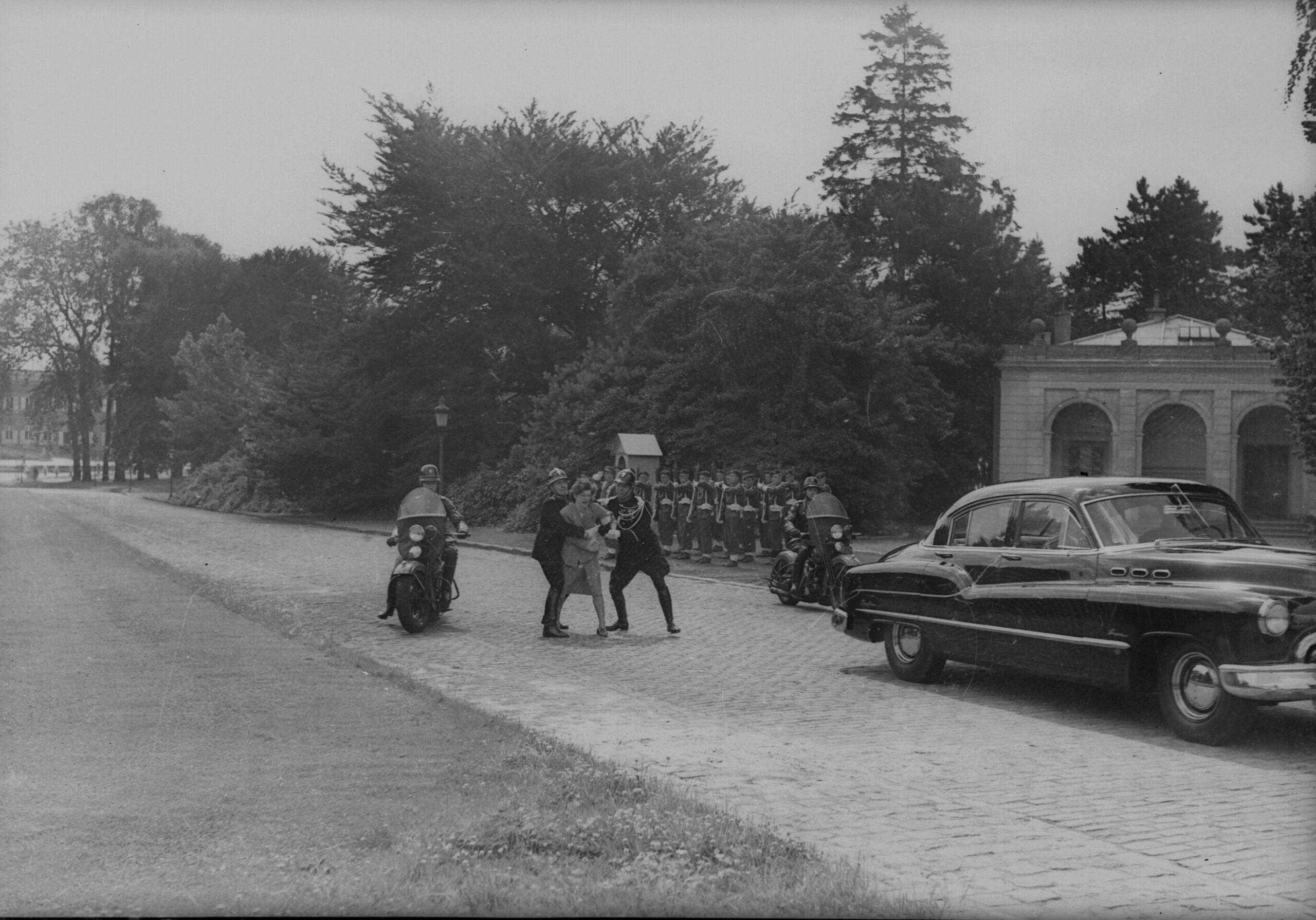
A protestor runs towards the car with King Léopold III and Prince Baudouin on their way to the abdication ceremony. King Leopold III abdicates to avoid tearing his country apart and to preserve the monarchy. Credit: Belga Archives
Belgians were dismayed at him seemingly having fun golfing and getting married again to a younger woman who was not a traditional royal type. The fact Princess Lilian was willing to move into Laeken Castle, told Belgians the King’s captivity cannot have been that harsh.
And by 1942, things were beginning to change. The British still not giving up and the Americans threatening to intervene – a Nazi victory did not seem certain anymore. In Belgium, this period is also the ultimate turning point, with civilians already facing another harsh winter.
Adding to that, the German occupation was becoming more brutal and repressive. In October, the Nazis imposed forced labour on Belgian civilians – including deportation to Germany. This scared the Belgian population, who faced losing brothers, husbands and fathers to the war effort. That summer, the deportation of Jews to concentration camps had also begun.
"It also symbolically says, as Belgium, we tried to stay neutral in this war and that should get us something. But It turns out we're just as occupied as any other country," the author explains.
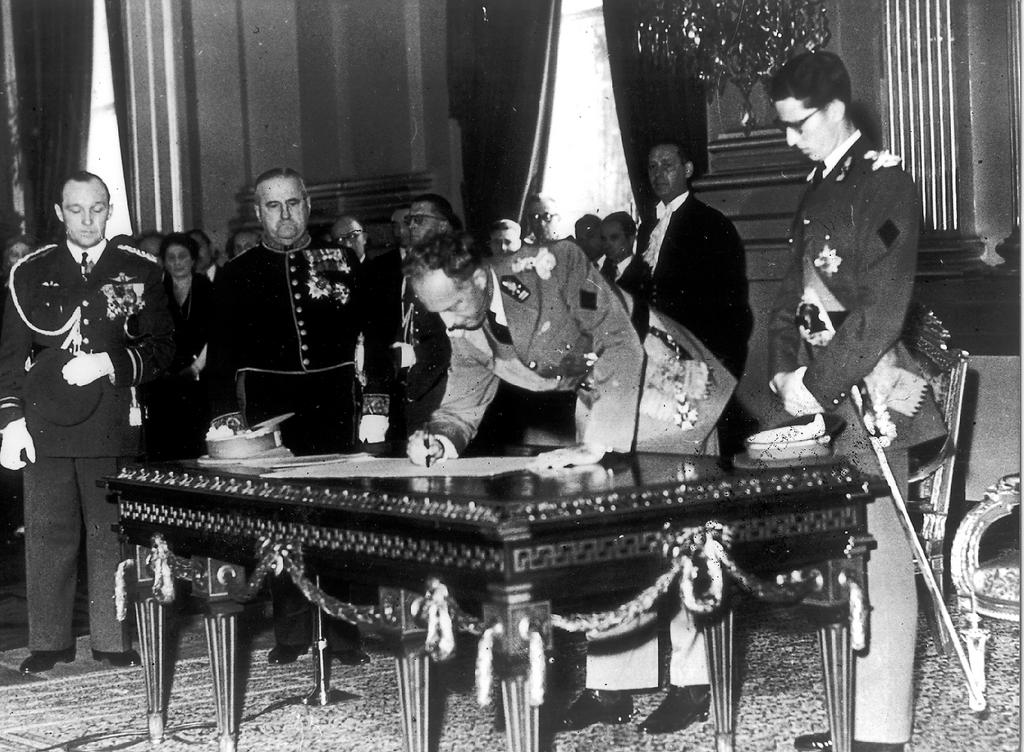
King Leopold III at the occasion of his abdication on the 16 July 1951. Behind him his son Prince Baudouin.
Importantly, Stuer says this engraves the symbolic image of Leopold not living up to his promise of sharing their fate and protecting them from the Germans – a central aspect of the future Royal Question.
Overall, little is known of Leopold’s actions during the middle years of the war, which is what makes the discovery of the working group document so important. But until the liberation of Belgium in August and September 1944, the chasm between Leopold and the rest of the country irreparably grew, Until the end, he believed he was the true moral leader of the county.
Despite differing contexts, Leopold had clung onto the idea of Belgium’s neutrality because it was written in his DNA, just like his hero father King Albert during the First World War, Stuer argues. "But this time, it also meant that he went as far as to be morally neutral between the Nazis and democracies," Stuer says.
This divide would set up the constitutional crisis which would eventually lead to his abdication in 1950, under massive popular pressure, saving a country that was teetering on the brink of a civil war.

